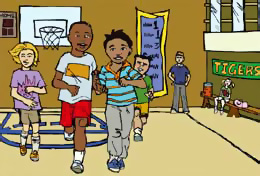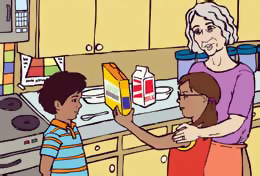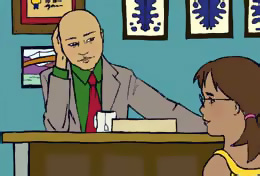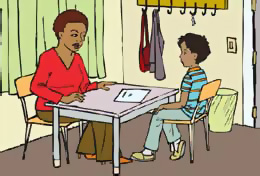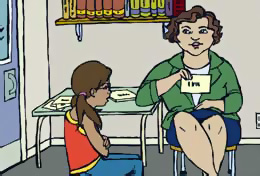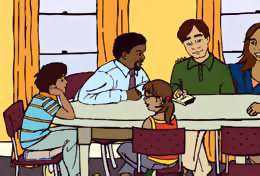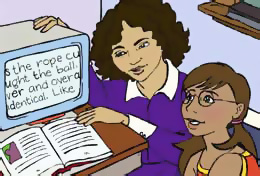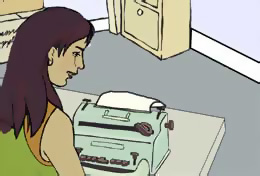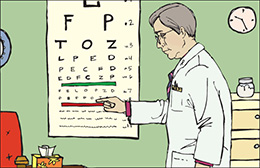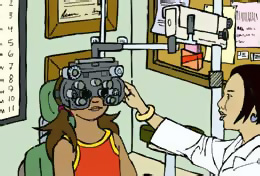With whom can Ms. Milton communicate, consult, and collaborate to meet the needs of students with visual impairments?
Page 8: Related Service Providers and Other Professionals
| Related Service Providers | |
|
Professionals who support physical education teachers in developing appropriate accommodations and modifications so that students with visual impairments can actively participate in grade-level physical education activities with their classmates. They may also provide an individualized program of physical education for students with visual impairments and other students with disabilities.
|
Professionals who work with students with visual impairments to ensure they have the necessary skills for post-secondary settings. In addition, CVRTs collaborate with teachers, other professionals, families, students, community agencies, and potential employers about transition services.
|
|
Professionals who advise students in matters related to school success and planning, including academics, attendance, social issues, and post-secondary transitions. They collaborate with TVIs, O&M specialists, and families to ensure that psychosocial issues related to blindness are addressed appropriately.
|
Professionals who administer individualized assessments to assist in educational decision making. School psychologists collaborate with TVIs to ensure that the assessments used are appropriate for students with visual impairments.
|
|
Professionals who support the efforts of general education teachers, TVIs, O&M specialists, and families to enhance students’ receptive and expressive communication skills. SLPs may provide direct instruction in the general education classroom, or in a pull-out program, for individuals or small groups of students. In addition, they may consult with the IEP team to create alternative communication methods, as needed, for students with visual impairments.
|
Professionals who collaborate with students, teachers, other professionals, families, and CVRTs. Additionally, they serve as liaisons between the school, community agencies, and potential employers to ensure that students with visual impairments have experiences to support successful post-secondary transitions.
|
| Other Professionals | |
|
Professionals who collaborate with teachers, other professionals, and families to ensure that all of the technological needs of the student are met.
|
Individuals who prepare braille versions of textbooks, which in turn allow students with visual impairments to access the general education curriculum.
|
|
Professionals who check eye health, evaluate the need for glasses and low vision devices, and monitor visual acuity, fields, and skills. They may treat some eye conditions, but they generally refer students to ophthalmologists for more in-depth medical or surgical eye care. Some optometrists have specialized training in low-vision magnification devices and are called low-vision specialists.
|
Professionals who monitor eye health, treat eye diseases, perform surgery, and evaluate visual acuity, visual fields, and the need for glasses. Ophthalmologists may evaluate students to determine whether they need low-vision devices, but for this service they often refer students to optometrists, who are low-vision specialists.
|
For example, the adapted physical education teacher supports the P.E. teacher at Evan and Emily’s school by suggesting accommodations that enable Evan and Emily to participate in gym class with their peers. One thing he does is to pair Evan with a classmate to help him run the bases during kickball.
